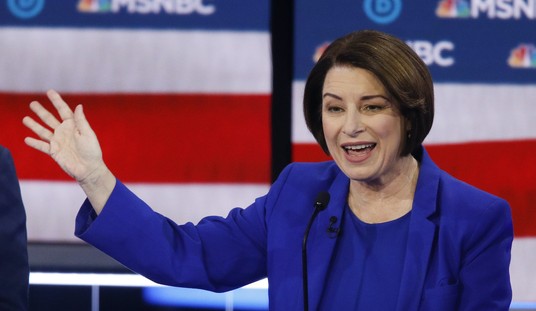
CNN reports that Robert Mueller tried to block the release of fired FBI Director James Comey’s memos of his conversations with President Trump over their concern that Trump and others might change their stories after reading Comey’s version of events.
Lawyers for CNN and several other media outlets argued for the release of Comey’s memos and related documents at the U.S. District Court in January 2018. At the same time, lawyers for the Special Counsel and the DOJ argued that the release of the documents would interfere with an ongoing investigation.
Mueller prosecutor Michael Dreeben joined the SC and DOJ attorneys in a private hearing with the judge. They showed him copies of the Comey memos and shared specifics about the SC investigation. They ultimately convinced the judge to rule in their favor and to seal the records.
(The CNN writer, Katelyn Polantz, emphasized that this was atypical behavior for a Freedom of Information Act request. CNN lawyers had no knowledge at the time that Dreeben or anyone from the special counsel’s office had taken the unusual step of speaking to the judge in person to keep the records confidential. It wasn’t revealed until later.)
Judge Boasberg wrote: “Having heard this, the Court is now fully convinced that disclosure ‘could reasonably be expected to interfere’ with that ongoing investigation.”
(Note: Redacted copies of the memos were declassified in April 2018.)
The transcript of the January 2018 hearing, was released by court order yesterday.
CNN reports that at the time of the hearing, the Mueller team was negotiating with Trump’s lawyers to arrange an interview with Trump at Camp David and other related interviews. Although a meeting with Trump obviously never materialized, the mention of it as a factor to be considered offered the Mueller team another reason why the judge should not allow the release of the Comey memos.
The newly released documents provide a glimpse into the thinking of the Mueller team at that point of the investigation. The transcript can be viewed here.
In reference to the meetings with Trump and other witnesses, Prosecutor Dreeben told the judge, “Special Counsel is attempting to determine the facts that transpired in and surrounding those meetings.”
Regarding Comey’s allegations that Trump had asked for his loyalty and requested that he drop the Flynn investigation, Dreeben explained:
In any investigation of this kind, the recollections of one witness, if disclosed to another potential witness, have the potential to influencing, advertently or inadvertently, the recollections of that witness.
CNN reports:
Shortly after the meetings with Comey, Trump and the White House had publicly contradicted the FBI director’s story, saying the President denied asking him about “letting Flynn go.” Comey told his version of the story first during congressional testimony in spring 2017. Dreeben described how the Comey memos were essential evidence in the investigation and included far more detail about the meetings than what the former FBI director had said publicly in testimony.
Dreeben’s next remark was extremely revealing. Dreeben told the judge, “In this instance, a person whose conduct is within the scope of the investigation is the President of the United States.”
So, by January 2018, the investigation had essentially become all about obstruction.
He also “told the judge about how the FBI had opened the obstruction investigation before Mueller’s appointment.”
Recall that Andrew McCabe responded to Comey’s firing by opening an FBI criminal investigation into Trump for obstruction of justice. He offered the lame excuse on his book tour that he wanted to make sure the investigation would survive “if anything happened to him.”
Dreeben explained to the judge:
A witness who knows that a contemporaneous record was made of particular statements is aware that the reliability of that account is enhanced merely by virtue of the fact that it was recorded, and an individual who is seeking to shape or mold his own statements around those of others thereby acquires an advantage in doing so that he would not otherwise have. The more that other witnesses are aware of the details of what is in the memoranda and is not in the memoranda, the greater the risk that they’re providing information that will assist the Special Counsel in completing the investigation and getting to the truth would be frustrated or impeded.
It’s not a surprise that a judge would rule against releasing the documents when approached by lawyers from the Special Counsel and the DOJ. This was but a minor skirmish in the war against President Trump.
The larger point is it tells us that only eight months into a 22 month long investigation, the Mueller team was no longer concerned with Russian collusion. If Mueller were a fair-minded, decent man, he would have let the American people know that their President was not a criminal.













Join the conversation as a VIP Member